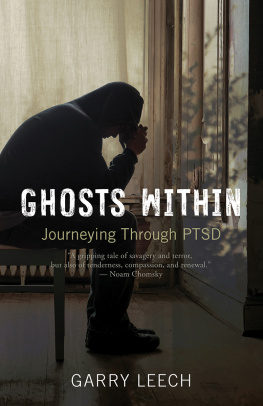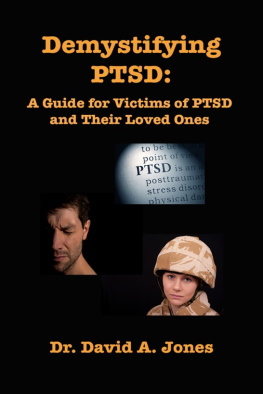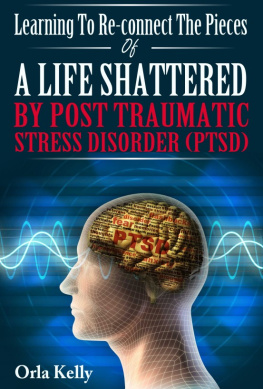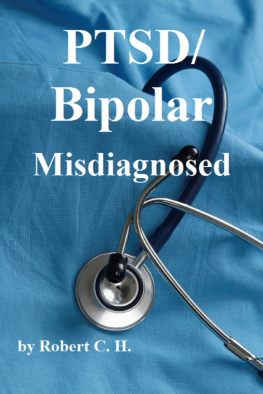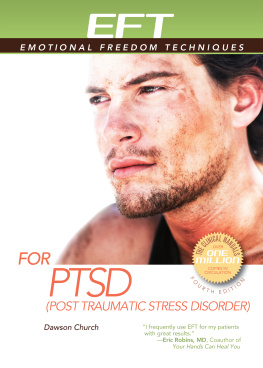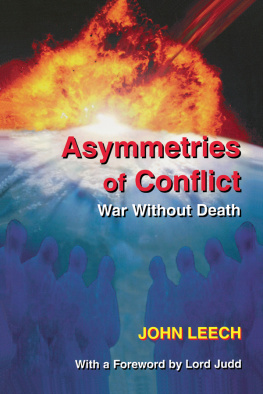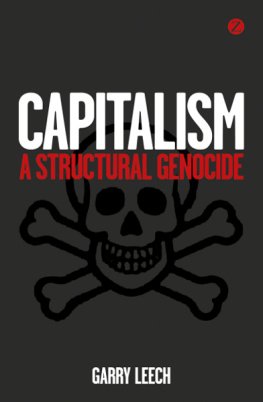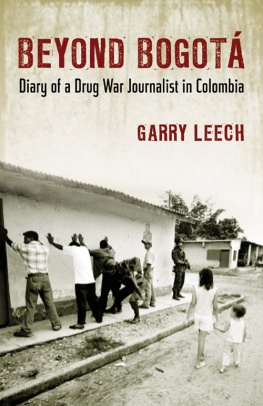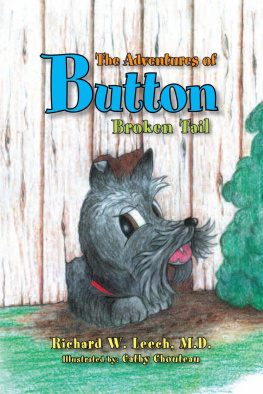GHOSTS WITHIN
GHOSTS WITHIN
Journeying Through PTSD
GARRY LEECH

Roseway Publishing
an imprint of Fernwood Publishing
halifax & winnipeg
For my son Morgan
Copyright 2019 Garry Leech
All rights reserved. No part of this book may be reproduced or transmitted in any form by any means without permission in writing from the publisher, except by a reviewer, who may quote brief passages in a review.
Editing: Brenda Conroy
Design: Tania Craan
eBook: tikaebooks.com
Printed and bound in Canada
Published by Roseway Publishing
an imprint of Fernwood Publishing
32 Oceanvista Lane, Black Point, Nova Scotia, B0J 1B0
and 748 Broadway Avenue, Winnipeg, Manitoba, R3G 0X3
www.fernwoodpublishing.ca/roseway
Fernwood Publishing Company Limited gratefully acknowledges the financial support of the Government of Canada through the Canada Book Fund, the Canada Council for the Arts, the Province of Nova Scotia and the Province of Manitoba for our publishing program.

Library and Archives Canada Cataloguing in Publication
Title: Ghosts within : journeying through PTSD / Garry Leech.
Names: Leech, Garry M., author.
Identifiers: Canadiana (print) 20190047836 | Canadiana (ebook) 20190047879 | ISBN 9781773632063
(softcover) | ISBN 9781773632070 (EPUB) | ISBN 9781773632087 (Kindle)
Subjects: LCSH: Leech, Garry M. | LCSH: Post-traumatic stress disorderPatientsCanadaBiography. |
LCSH: JournalistsCanadaBiography. | LCGFT: Autobiographies.
Classification: LCC RC552.P67 L44 2019 | DDC 616.85/210092dc23
CONTENTS
PREFACE
A DECADE AGO I wrote a book titled Beyond Bogot: Diary of a Drug War Journalist in Colombia. It was a memoir of the investigative journalism Id conducted in Colombias rural conflict zones over the previous eight years. But the story didnt end there. I continued to work as a war correspondent in Colombia for five more years and then returned on several occasions after that to teach a course on media and conflict at Javeriana University. Unfortunately for me and my family, what happened in Colombia didnt stay in Colombia. I brought the trauma I experienced and witnessed in that countrys conflict zones home with me.
In 2016, I was diagnosed with post-traumatic stress disorder (PTSD), after exhibiting symptoms of the illness for the previous four years. My mental illness turned my world and that of my family upside down. This book tells the story of how my family and I have learned to live with this disorder. It describes in detail the horror that life becomes when someone who has experienced war or other violence brings their trauma home. While this book is in many ways a sequel to Beyond Bogot, it is also a stand-alone work.
I have tried to tell my story as honestly as I can in order to provide the reader with valuable insights into what it is like to live with PTSD. I also place my story in the broader context of PTSD in our society. I have discovered that many people are uncomfortable around those who have a mental illness. While they dont hesitate to ask people with serious physical illnesses how they are doing and offer them support, many dont know how to respond to those afflicted with mental illness. I hope this book helps dissolve some of the stigma and fear so prevalent in attitudes towards people with PTSD and mental illness in general.
It is also my hope that others who suffer from this mental illness might read this book and feel affirmed and not so alone, because the feeling of isolation, that nobody understands what you are going through, is one of the worst aspects of PTSD. Additionally, I hope that my story provides some insights and comfort to the loved ones of those who endure PTSD, so that they may better understand what their family member or friend is experiencing.
It is estimated that eight million people in the United States and more than three million Canadians have PTSD, leading some to argue that the mental illness exists in near epidemic proportions, particularly since the wars in Iraq and Afghanistan. But these numbers are likely low because the illness often goes undiagnosed and untreated. In many ways, it is an invisible epidemic that mostly impacts individuals and families behind closed doors. However, it is not only those like me who have experienced war that are enduring this mental illness. In fact, the largest demographic in North America with PTSD is women who have suffered rape or sexual abuse. And the women with PTSD Ive talked with have told me that, even though their traumatic experiences were very different to mine, their resulting mental illness often manifests itself in strikingly similar ways.
For those readers with PTSD who are concerned that they might be triggered by graphic accounts of the traumatic events depicted in this book, nearly all the descriptions of my traumatic experiences are represented in the form of intrusive memories: they are easily identifiable because they are in gray-shaded boxes separated from the main body of text throughout the book. However, there are also several brief descriptions of traumatic experiences that appear in the main body of the text.
I describe witnessing a rape on page 107 and provide an account of being held captive at gunpoint on page 120. I feel that these two experiences need to be included in the main body of the text in order to contextualize the therapy I was engaged in at the time. There are also several brief accounts of the traumatic experiences of Colombians Ive encountered who likely have PTSD and these appear on pages 6265. I feel it is necessary to include these to highlight how widespread trauma is for those who have no choice but to live their lives immersed in war. Im providing the page numbers to these various descriptions of trauma so those who wish to skip them can do so.
I would not be here today to tell my story if it were not for some incredible and compassionate people. First and foremost, I will be forever in the debt of my partner, Terry, for being by my side through the darkest moments. She has exhibited a level of compassion that is almost incomprehensible to me. I want to sincerely thank my sons, Morgan and Owen, who have also been there for me day in and day out, comforting me and lifting my spirits with their positive energyand giving me a reason to live. Additionally, I owe a huge debt of gratitude to my therapists, Todd Vassallo and Emily Bushell; Todd for bringing me back from the edge and Emily for giving me back my life.
I also wish to acknowledge the friends of Morgan and Owen, who, along with my sons, repeatedly filled my world with the uplifting energy that only children can generate. The sound of children playing was one of the only things that gave me any sense of joy during my darkest times, and for that I thank my grandchildren, Kathleen and Dylan, as well as Sadie, Olivia, Leon, Jade and Mady.
My gratitude also goes out to those big kids who have been there for me in various ways throughout this ordeal: my family Johan Gallardo, Karyn Leech Frazeur, Donald Leech, Norma Leech, Michele Villaneuve; and friends Amber Buchanan, Joanne Citrigno, Carolyn Claire, Stephen Harris, Tracey Harris, Evelyn Jones, Stephen Law, Barbara Miller, Wayne Miller and Stephen Paul. My thanks go to those who read early drafts of the manuscript and provided valuable feedback: Janet Bickerton, Amber Buchanan, Emily Bushell, Aviva Chomsky, Nicky Duenkel, Terry Gibbs, Tracey Harris, Stephen Law, Barbara Miller, Stephen Paul, Judy Pratt and Todd Vassallo. Finally, I thank the Roseway Publishing team: Beverley Rach, Errol Sharpe, Brenda Conroy, Debbie Mathers, Tania Craan and Curran Faris.

